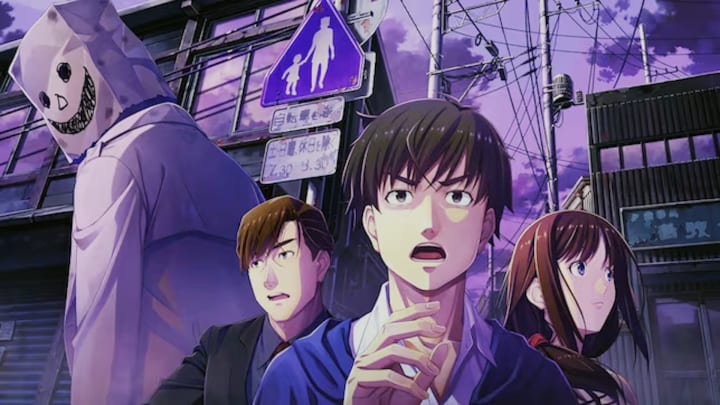Emio The Smiling Man preview: Not your granny’s detective club

A paper bag with a smiley face drawn on. It’s the kind of thing you’d expect from a child, perhaps as a little craft project – or if they had something to hide, they might wear it. I’m sure this detail is important somehow, but I can’t quite figure out how, not yet anyway.
This is just one of the lines of thinking swirling around in my head long after I’ve turned Emio – The Smiling Man: Famicom Detective Club off. Don’t let the silly name and the fact that it’s a Nintendo first-party game fool you. Just from the lengthy, three-chapter-long demo, it’s evident that Emio takes its subject matter seriously, as it should.
Those twee little paper bags ended up over the heads of a serial killer’s victims 18 years before this story begins during a case that police never solved – and it’s happening again. You play as a 19-year-old junior detective working for a PI agency, and your job in the three chapters the Emio demo covers is to start piecing together information about the case, a task that quickly gets muddied by at least three explanations for the crime. It could be a copycat who knew private details of the original case, the original killer, or someone imitating a local legend, one that’s uncomfortably close to the original crimes.
Emio deftly – and mercifully – sidesteps the easy Slender Man comparisons by adopting an approach more typical of a crime procedural. You gather evidence, speak with witnesses, wheedle information out of the police and a particularly obnoxious inspector, and try to make sense of everything you come up with. Your boss is off doing his thing, while your partner is handling background information about the first victim, so your job is to understand the facts of the crime and how they relate to the original spree.
The answer is that important parts don’t match up, which sends the investigation in a new and much darker direction that I’m eager to see unfold.
There’s also a small indicator in the middle of chapter two that has me thinking Emio will eventually focus as much on the psychology of the criminal as much as the actual crimes. The setup so far is less Anime Nancy Drew like the first two Famicom Detective Club games are and focuses more on people and their motivations, so that possibility, combined with the expert way Emio doles out new facts and potential leads, has me so intrigued that I’m thinking about it long after I set it down for the night.
It helps that Emio is generally just more playable than the first two games as well. It follows a similar command-style structure as its predecessors, but getting stuck is much less likely to happen thanks to a “think” option. The protagonist will ponder some new piece of information and lightly suggest a way forward, which is handy considering the actual command prompts are a bit confusing – “call/engage” for example, or “ask/listen.” It’s an odd setup, but you eventually get used to how things work.
Emio periodically expects you to review the intel you have, but it’s forgiving enough that, if you missed a fact or had an alternate idea, you aren’t penalized. Your partner gently chides you, and things move ahead. Higher stakes in these moments would help make Emio feel more like a detective game and less like a visual novel starring a detective, but the way the story is structured, easy and frequent fail states like that would just be pointlessly frustrating.
Emio – The Smiling Man’s demo ends at chapter three, just as the investigation finally starts picking up steam. Expect more from us on the new Famicom Detective Club game shortly after launch on Nintendo Switch, when we’ll have a full review.
